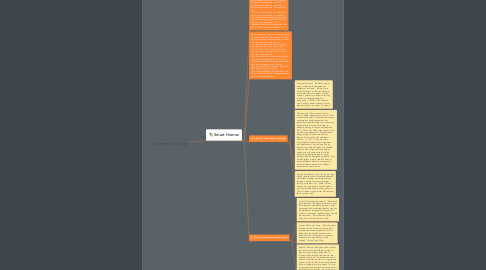
1. Smart Homes
1.1. What are smart homes? - "A Smart Home is one that provides its home owners comfort, security, energy efficiency (low operating costs) and convenience at all times, regardless of whether anyone is home." (Smart Home USA) - "Some of the functionalities offered by Smart Homes are related to economic and comfort-related aspects for example lights and heater systems automatically turning on/off according to the inhabitant’s location/presence within the home." (Designing Smart Homes, p. 1)
1.2. Some examples of smart home technology: - Amazon Alexa/Google Assistant: Virtual assistants that can answer questions, search the web, order from retailers, etc. - Philips Hue Lightbulbs: Control lighting conditions, colors, etc. on command - TP-Link: Smart light switch device that allows the user to control lights from their phone or virtual assistant - Ecobee: Smart thermostat that allows user to control the temperature on command - NetGear Arlo: Security camera that records and send live feed to user's devices - Ecovacs: Automated vacuums, controlled from phone or remote control - Smart Coffee Makers: Coffee makers that are controlled by time to start making coffee at the user's specified time
1.3. Impacts of smart home technology:
1.3.1. Enhanced Security: "Whether home or away, residents are alerted about dangerous incidents... [Smart home devices] connect to video surveillance and smoke alarms to detect unusual events in the home, while also limiting access to only those people it recognizes..." (INTEL). This will also give the user a general peace of mind, whether they are in or out of the home.
1.3.2. Environmental Conservation: "Smart homes, being integrated into a Smart Grid eco-system in terms of households’ energy consumption and management, has become the next big thing and is generally believed that consumers are able to decrease energy consumption (Makovich, 2011). Thus, it is of high importance to find out the true perception of households on energy saving through smart homes. (Energy Conservation Through Smart Homes... p. 234) // "They do so by automatically controlling the equipment and appliances in the home and using energy only where and when it is needed. They can also collect real-time data on energy use and communicate with the electric grid, which can lead to more savings. (ACEEE Energy Report, 2018). One of the biggest impacts revolves around environmental and energy conservation, and smart home devices are making it easier for the user to do so.
1.3.3. Convenience/Ease of Use: "Easily manage health, remotely control home appliances, and access security monitoring services through a variety of screens - phones, tablets, computers, etc." (INTEL). Most devices are fairly easy to use and figure out, and each device provides a sense of "this will make my day-to-day life easier or faster in some way."
1.4. Barriers for smart home technologies:
1.4.1. Lack of Knowledge/Awareness: "Despite all these benefits, the literature informs us that the impacts of new technologies are often unexpected and predicted benefits may not be realized, as insights about important interactions between technology and society are neglected." (Social Barriers to the Adoption of Smart Homes, p. 364)
1.4.2. Lack of Wanting to Learn: "Nobody wants to deal with the hassle of trying to learn multiple devices and platforms and not being able to combine features and resources. Until integration is improved, adoption of certain devices will be capped." (Smart Cities Dive)
1.4.3. Security Concerns: Everyone's heard about the concern that technology is going to take over the world, and this way of thinking will absolutely stop people from wanting to have any of these smart home devices. In addition to this, it's important to keep ini mind that almost every tech-based thing is hackable to some extent. This also raises concerns because if someone were to hack the security features of a smart home, it would defeat the purpose of having it in the first place.
